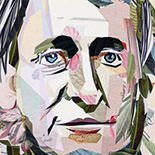 Henry David Thoreau (July 12, 1817 – May 6, 1862) was an American author, poet, philosopher, polymath, abolitionist, naturalist, tax resister, development critic, surveyor, historian, and leading transcendentalist.
Henry David Thoreau (July 12, 1817 – May 6, 1862) was an American author, poet, philosopher, polymath, abolitionist, naturalist, tax resister, development critic, surveyor, historian, and leading transcendentalist.
He is best known for his book Walden, a reflection upon simple living in natural surroundings, and his essay Resistance to Civil Government (also known as Civil Disobedience), an argument for disobedience to an unjust state.
Thoreau’s books, articles, essays, journals, and poetry total over 20 volumes. Among his lasting contributions are his writings on natural history and philosophy, where he anticipated the methods and findings of ecology and environmental history, two sources of modern-day environmentalism. His literary style interweaves close natural observation, personal experience, pointed rhetoric, symbolic meanings, and historical lore, while displaying a poetic sensibility, philosophical austerity, and “Yankee” love of practical detail. He was also deeply interested in the idea of survival in the face of hostile elements, historical change, and natural decay; at the same time he advocated abandoning waste and illusion in order to discover life’s true essential needs.
He was a lifelong abolitionist, delivering lectures that attacked the Fugitive Slave Law while praising the writings of Wendell Phillips and defending abolitionist John Brown. Thoreau’s philosophy of civil disobedience later influenced the political thoughts and actions of such notable figures as Leo Tolstoy, Mohandas Gandhi, and Martin Luther King, Jr.
FRIENDSHIP
Henry David Thoreau
I think awhile of Love, and while I think,
Love is to me a world,
Sole meat and sweetest drink,
And close connecting link
Tween heaven and earth.
I only know it is, not how or why,
My greatest happiness;
However hard I try,
Not if I were to die,
Can I explain.
I fain would ask my friend how it can be,
But when the time arrives,
Then Love is more lovely
Than anything to me,
And so I’m dumb.
For if the truth were known, Love cannot speak,
But only thinks and does;
Though surely out ’twill leak
Without the help of Greek,
Or any tongue.
A man may love the truth and practice it,
Beauty he may admire,
And goodness not omit,
As much as may befit
To reverence.
But only when these three together meet,
As they always incline,
And make one soul the seat,
And favorite retreat,
Of loveliness;
When under kindred shape, like loves and hates
And a kindred nature,
Proclaim us to be mates,
Exposed to equal fates
Eternally;
And each may other help, and service do,
Drawing Love’s bands more tight,
Service he ne’er shall rue
While one and one make two,
And two are one;
In such case only doth man fully prove
Fully as man can do,
What power there is in Love
His inmost soul to move
Resistlessly.